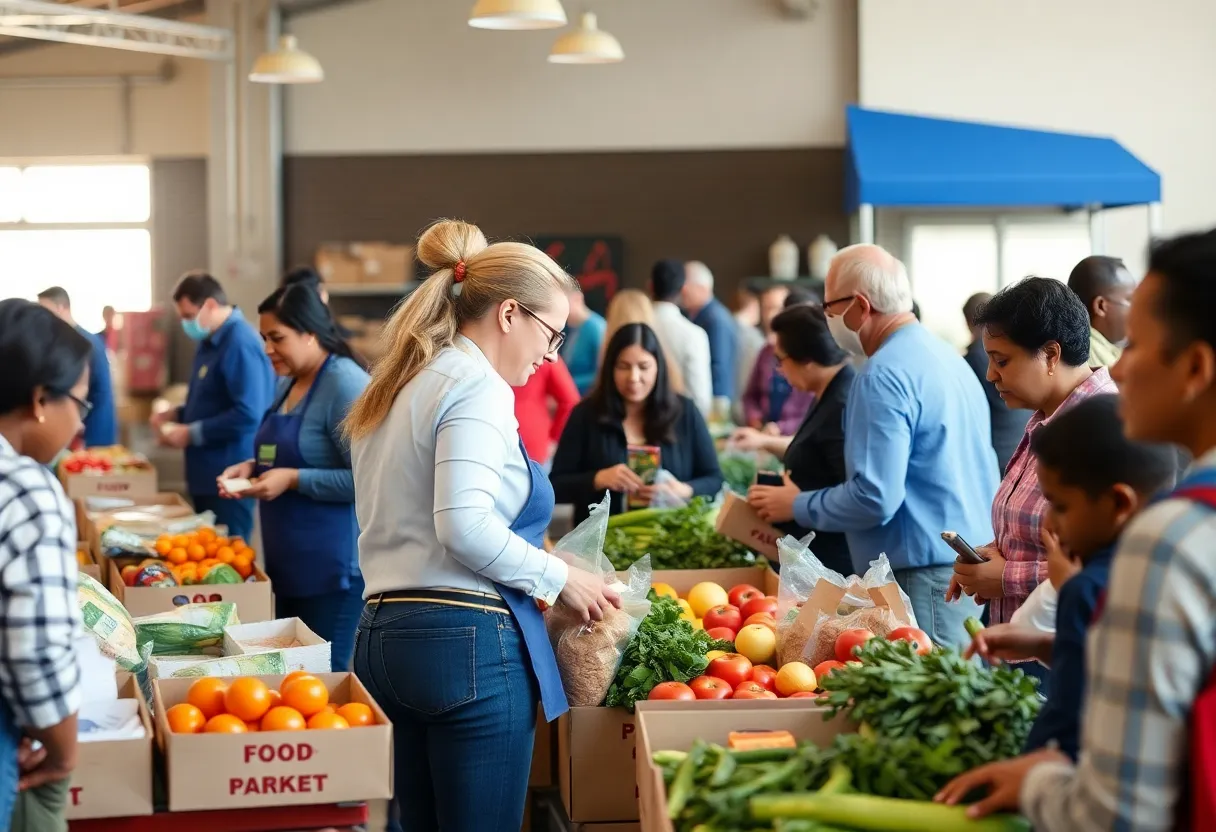News Summary
Nonprofit organizations in Georgia express deep concern over President Trump’s tax and spending bill, which threatens food assistance programs like SNAP. The stricter eligibility requirements could leave families more reliant on food banks, with reports indicating rising hunger rates in regions already struggling with food insecurity. Community leaders highlight efforts to mitigate the crisis as organizations like Golden Harvest Food Bank ramp up support in response to increasing needs.
Augusta, Georgia – Nonprofit organizations in Georgia have voiced strong concerns regarding the potential impacts of President Donald Trump’s recently enacted $4.5 trillion tax and spending bill, informally referred to as the “Big, Beautiful Bill.” The legislation introduces significant cuts to food assistance programs, notably the Supplemental Nutrition Assistance Program (SNAP), which could adversely affect families striving to meet their nutritional needs.
The new law implements stricter work requirements that may make it more difficult for many individuals to qualify for SNAP benefits. As a result, many Georgia families may increasingly depend on food banks for nourishment, exacerbating an already challenging situation. Reports suggest that the demand for food assistance is soaring, with one local soup kitchen serving an average of 200 meals per day, a figure projected to rise to 300 as the effects of the law unfold.
Hunger rates were climbing even prior to the “Big, Beautiful Bill,” with one out of five residents in Richmond County facing food insecurity. Alarmingly, Hancock County’s child hunger rate is the highest in the nation, with one in two children experiencing hunger. This unsettling trend is underscored by statistics indicating a deterioration of food security in the region; the food insecurity rate has worsened from one in seven individuals to one in six since last year. In fact, 2023 is expected to witness the highest levels of national hunger in over a decade, fueled by factors such as rising food costs and the recovery from Hurricane Helene.
Furthermore, the Trump administration’s decision to freeze funding for after-school and summer programs in Georgia and South Carolina has raised significant concerns regarding the future of these vital support services. In light of these circumstances, Golden Harvest Food Bank has been actively responding to the rising need for food assistance, having served over 557,000 families last year alone, equating to 14 million meals and 3.7 million pounds of fresh produce distributed throughout the community.
Collaborative efforts among local organizations are crucial in tackling the food insecurity crisis. For example, the Augusta Health Food Pantry has been working to enhance accessibility to medically tailored food programs as part of a broader initiative to alleviate hunger in the area.
In response to the growing demand for food assistance, federal agricultural officials have visited Golden Harvest Food Bank to discuss ongoing recovery efforts following Hurricane Helene. This disaster led the USDA to introduce the Disaster Supplemental Nutrition Assistance Program (D-SNAP), which aims to assist around 982,930 households in 50 counties across Georgia impacted by natural calamities. Additionally, the USDA has provided waivers for various nutrition programs to expedite food access for those recovering from the disaster.
Despite the troubling trends and the anticipated increase in food insecurity, many nonprofit organizations and community leaders remain optimistic about the power of community support. Golden Harvest Food Bank has recently provided over 600,000 meals and 1.3 million servings of water to affected communities in the immediate aftermath of Hurricane Helene, illustrating the resilience of local organizations in times of crisis.
As the fallout from the “Big, Beautiful Bill” becomes clearer, nonprofits across Georgia are rallying for support to ensure that families in need continue to receive essential food assistance. With hunger levels on the rise and the challenges of accessing food complicated by policy changes, communities are more than ever relying on the commitment of local organizations to bridge the gap and stave off hunger for vulnerable populations.
Deeper Dive: News & Info About This Topic
HERE Resources
Safety Measures Enhance Fourth of July Celebrations
Augusta Prepares for Annual Independence Day Celebration
Augusta Prepares for Fourth of July Celebration
New Foster Home Opens in Augusta for Local Youth
FEMA Supports Recovery Efforts in Georgia Post-Hurricane Helene
Surrey Center Pharmacy Loses USPS Contract, Community Concerns Rise
Augusta Initiatives Tackle Child Food Insecurity
Georgia’s Unemployment Rate Remains Steady at 3.6%
Family Displaced After Electrical Fire in Augusta
Georgia’s Job Market Sees Positive Trends in Unemployment Claims
Additional Resources
- WRDW: Big Beautiful Bill and Food Banks
- Wikipedia: Food insecurity
- Augusta Health: Elected Officials Visit Food Pantry
- Google Search: Food Assistance Programs
- WJBF: Augusta National and Golden Harvest
- Google Scholar: Food Security Research
- DNROnline: Augusta Health Showcases Food Pharmacy
- Encyclopedia Britannica: Hunger
- WFXG: Golden Harvest Food Bank Expansion
- Google News: Hunger in the US

Author: STAFF HERE AUGUSTA WRITER
The AUGUSTA STAFF WRITER represents the experienced team at HEREAugusta.com, your go-to source for actionable local news and information in Augusta, Richmond County, and beyond. Specializing in "news you can use," we cover essential topics like product reviews for personal and business needs, local business directories, politics, real estate trends, neighborhood insights, and state news affecting the area—with deep expertise drawn from years of dedicated reporting and strong community input, including local press releases and business updates. We deliver top reporting on high-value events such as Arts in the Heart Festival, Westobou Festival, and Masters Week. Our coverage extends to key organizations like the Augusta Metro Chamber of Commerce and Greater Augusta Arts Council, plus leading businesses in manufacturing and healthcare that power the local economy such as Textron Specialized Vehicles, Cardinal Health, and Nutrien. As part of the broader HERE network, including HEREAtlanta.com and HERESavannah.com, we provide comprehensive, credible insights into Georgia's dynamic landscape.


